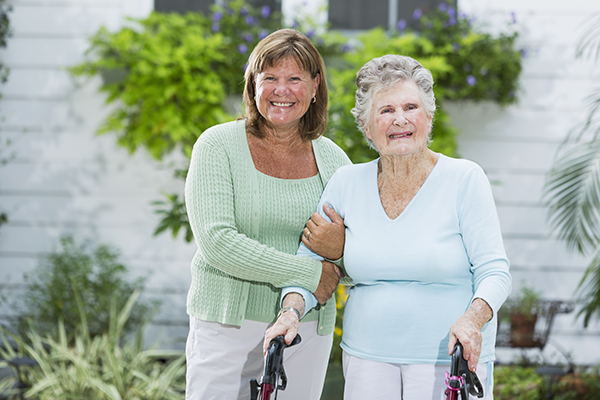If you’re providing care for a senior family member, it is likely that you stumbled into the responsibility with very little formal training: you saw the requirement, and thoughtfully stepped forward to meet it. Yet, at Independence-4-Seniors Home Care, extensive training is provided to each of our professional in-home caregivers before they’re fully equipped to safely and effectively take care of seniors. In our effort to empower family caregivers, we have detailed some of the crucial skills needed to give the highest possible quality senior care.
Nutrition: Ensuring complete nutrition for an elderly person is often complicated. Medication side effects can result in food being less appealing. Chewing and swallowing problems can be a factor. And loneliness or depression can have a significant impact on appetite. As a matter of fact, senior malnutrition is now quite prevalent in older adults, and isn’t as easy as noticing whether a senior has lost weight. Speak to the senior’s physician or a dietitian to develop a nutrition plan; and, be sure the senior’s fluid intake (particularly plain water) is adequate – at least 8 to 10 glasses of fluid daily.
Infection Control: Being in close contact with a senior as you provide personal care boosts the risk for spreading viral and bacterial infections. The very best defense against infection is trying to keep hands clean. Even when using protective gloves, hands should still be washed thoroughly with soap and warm water, both before you apply and after removing gloves.
Communicating: Speaking with your older family member may seem like second nature, but there are a few key points to consider that can help the person feel more secure and prevent lowered self-esteem. Older adults must be spoken to in a respectful manner – never being patronizing or demeaning. Asking open-ended questions and allowing the senior enough time to answer thoroughly without interrupting, are important communication techniques. And in case the person is suffering from dementia or Alzheimer’s disease, avoid correcting the individual, especially if the topic being discussed increases emotional responses such as agitation or aggression.
Documenting: Maintaining good records of even slight changes in the older adult’s condition, and providing specifics to the healthcare team immediately, is paramount to ensuring your loved one has all of the information needed to manage any potential concerns. Note dates, times, and as many details as you can – physical changes such as increased pain, numbness, swelling, etc., in addition to any changes in attitude and disposition.
Want more tips from our professionally trained and highly skilled home care team, or a partner in care to deliver hands-on help and support for your senior family member? We’re here to partner with family caregivers to ensure seniors receive the highest possible quality of care all the time. Call Independence-4-Seniors Home Care at (630) 323-4665to discover more about how we can help.

